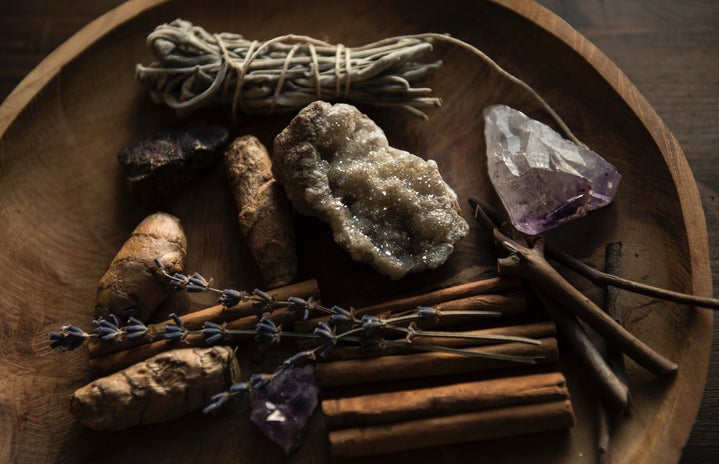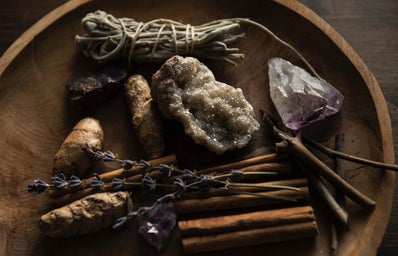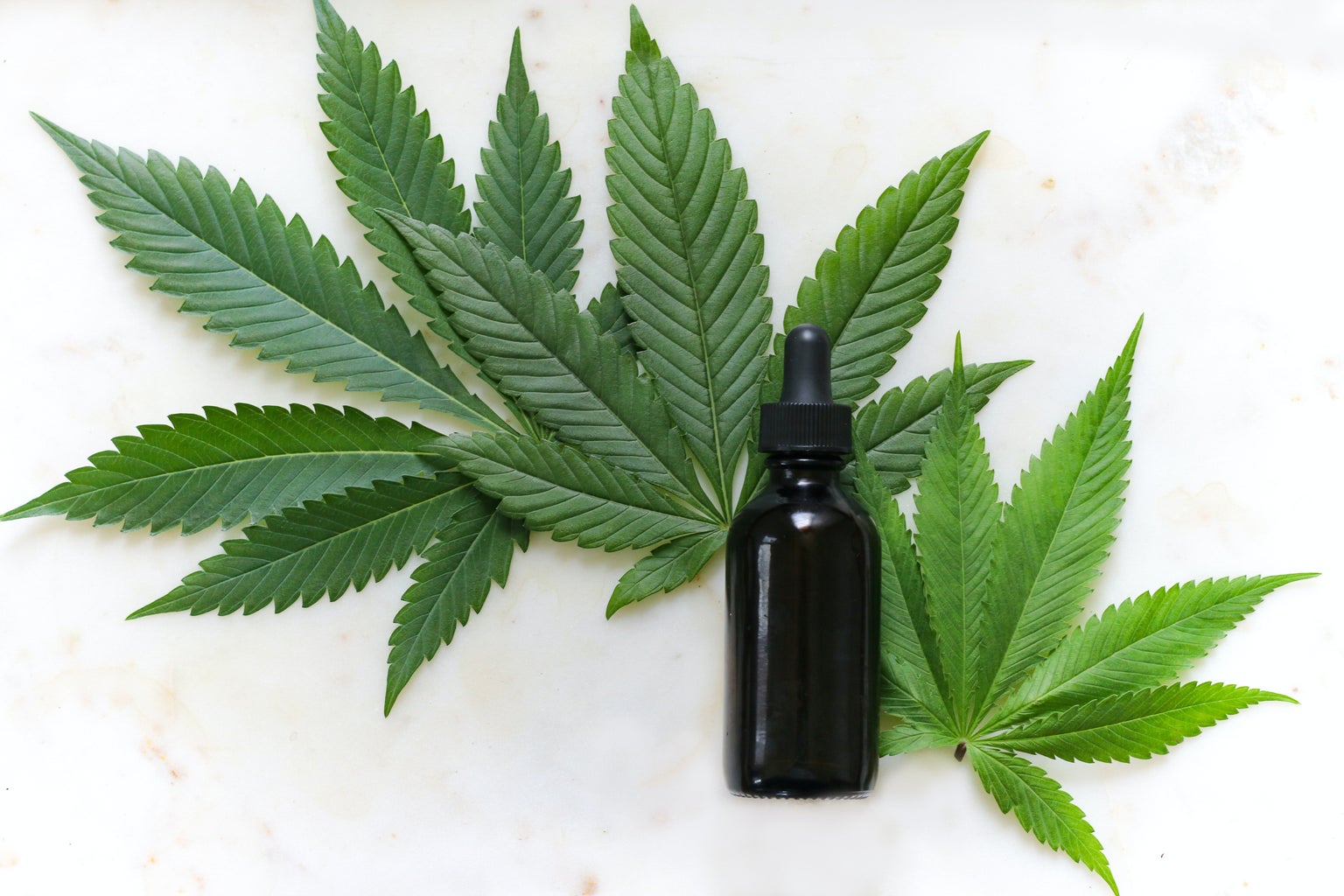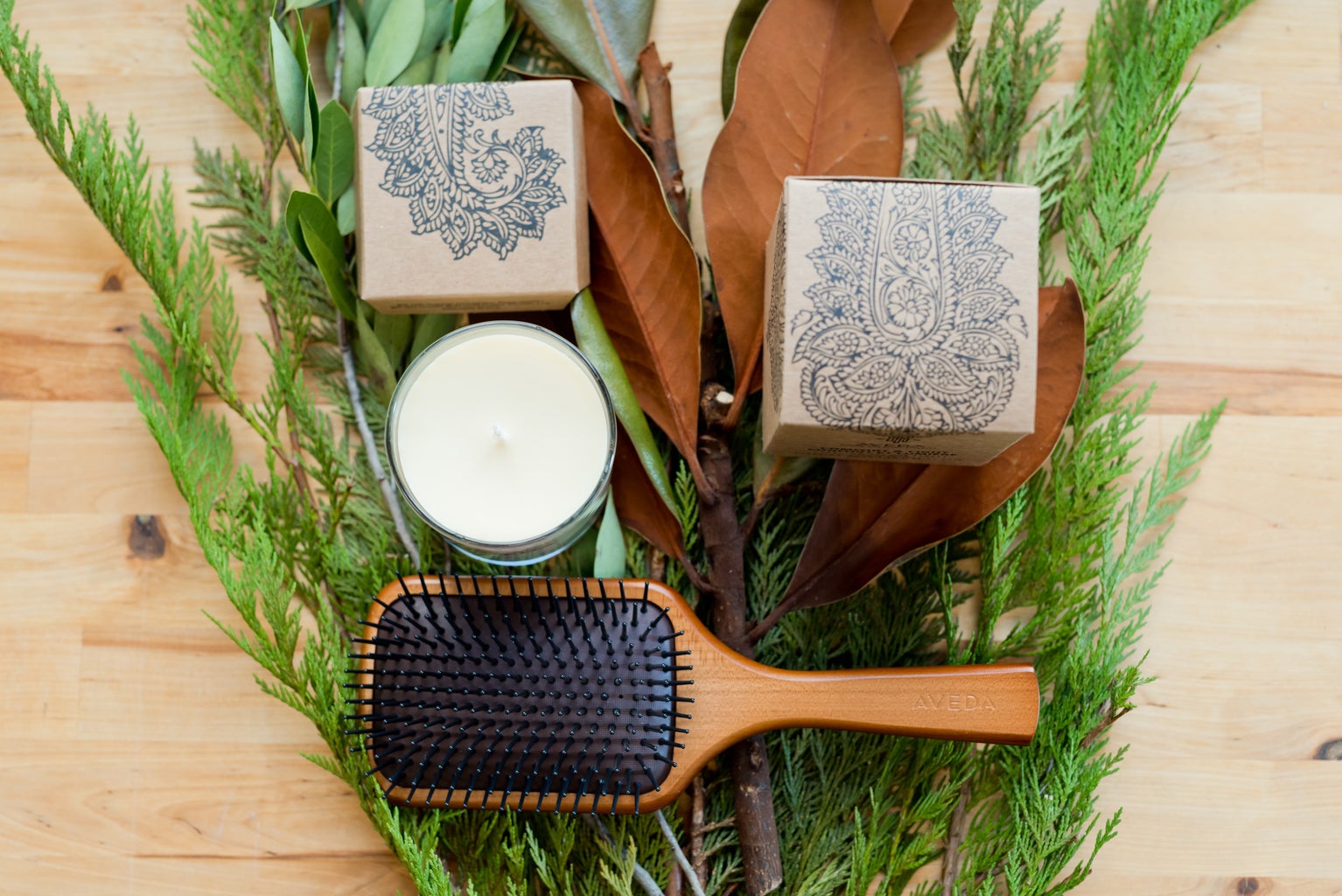The Her Campus National Editors write about products we love and think you’ll love too. Her Campus has affiliate partnerships, so we get a share of the revenue from your purchase. All products are in stock and all prices are accurate as of publication.
Every woman has their own hair care routine. Whether your hair type is curly, straight, or wavy, We all desire hair that is healthy, vibrant and full of life. This article will introduce natural hair care tips inspired by ancient Ayurvedic practices that can lead to thick, beautiful, and healthy hair.
Ayurveda
To achieve and maintain healthy hair through natural remedies, you must understand the basics of Ayurveda.
Based on the ancient Indian healthcare system, Ayurveda is rooted in natural and holistic approaches to sustaining good physical and mental health. Ayurveda teaches that having a healthy body and mind will result in a healthy scalp and optimal hair growth. These approaches can be traced back to religious texts and myths while also being part of traditional hair care in South Asia.
Oils
Many South Asian mothers and grandmothers have been applying oils with herbal massages to themselves and their children for decades. Massaging helps exfoliate, moisturize and improve the circulation in the scalp; this way the hair stays healthy at the root. The following are oils known to be used:
Coconut Oil
Coconut oil is used to revive and hydrate brittle hair. It contains omega-3 fatty acids and Vitamin E, making it moisturizing and soothing to the scalp. Coconut oil is also known for preventing damage caused by ultraviolet (UV) exposure. Anyone can extract coconut oil directly from homemade coconut milk, or purchase from brands depending on the strength of your hair, such as Shea Moisture, Trader Joe’s, Parachute, etc.
Castor Oil
Castor oil is often used for hair loss. It can be applied on the eyebrows, lashes and edges. It nourishes the scalp as well as protects the strands, healing the roots to increase hair growth. In addition, castor oil can be used to fight fungal overgrowth, prevent scalp inflammation and can also be combined with coconut oil to lessen the sticky texture. However, steer clear of this oil if you are pregnant.
This oil can be purchased from stores and brands such as Sally Beauty, Shea Moisture, Tropic Isle, or Pura D’or.
Amla Oil
Amla oil is derived from the fruit of the Amla plant, also known as “Gooseberry”. Its potent antioxidants help with hydration, soothing inflammation of the scalp, protecting the hair shaft, and restoring and regulating oil production. The phytonutrients, vitamins, and minerals, as well as the antibacterial nature of Amla can aid with preventing dandruff. In addition, Amla oil is also known to prevent graying hair and breakage. Those with an oily scalp and dry brittle hair will benefit the most from this oil.
The most popular Amla oil brand used by most South Asian people is Dabur. They can be found on Amazon, Walmart, or at your local Indian, Pakistani, or Bengali supermarket.
Herbs, Plants, & Rice
Rosemary Herbs
Rosemary herbs have been used to increase hair growth by improving a scalp’s circulation. It is also known to have recovered hair loss. There are two common ways the herbs are used in tea and oils.
Rosemary solution can be made by bringing the herbs to a boil, and then letting them simmer in a pot of water for fifteen minutes. Then, it can be poured into a container through a sieve and stored in the fridge for up to three days. It can also be sprayed on the hair before showering.
Rosemary oils can be purchased from brands such as Mielle, Pura D’or, Neev, or Khadi Natural. It can also be mixed with other oils as well.
Henna Leaves
Henna is known as a natural dye derived from the Mignonette tree. It can be used as a hair mask to clean the follicles and eliminate the different types of dandruff and impurities. It increases hair growth as well as strengthening it from the roots to create soft, silky and smooth hair.
Henna can be used with other herbs such as aloe vera, neem, amla, etc. Most brands are seen sold in any South Asian small businesses and supermarkets, or on Amazon.
Rice Water
Rice water is known to be a successful hair loss remedy (this method was actually a trend on TikTok a while ago). It repairs damaged cells to strengthen the hair and the necessary proteins such as Keratin to promote hair growth. The antioxidants contained in rice water are also known to nourish the hair, making it silky and smooth.
To create rice water, you must use the water derived from rinsing uncooked rice. The water can be separated and sprayed directly on the scalp before showering.
Throughout the course of time, the herbs and oils I mentioned above aren’t just used by South Asians, but are also used by those in surrounding countries. They can be used for varying purposes, or hair, and even in traditional medicine to improve physical and mental health issues.
As we age, the condition of our hair changes. Every woman in any culture or age group is aware of how important our hair can be to us. From textured hair to shaved heads, our presence and absence of hair can be significant to our confidence.





